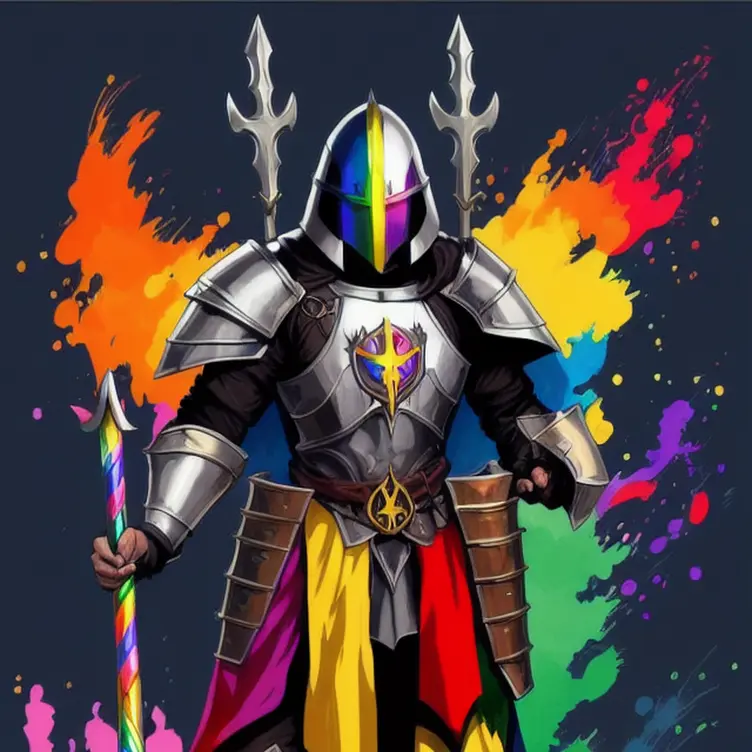I posted this on Reddit a while ago and it sparked some really good discussion and recommendations.
I really like The Expanse - as it doesn’t just discuss the attempted terraforming of Mars and the colonisation of the Main Asteroid Belt but also
spoiler
the way that these communities decline when abundant habitable planets are discovered, where life is much easier.
So yeah, what are your best examples?
Firstly I’d like to mention The Lost Fleet series by John G Hemry. It’s military sci-fi, as a part of the plot it discusses two forms of FTL travel, jump drives allowing you to FTL between adjoining stars, and the later invention of hypernet gates allowing direct travel from one star to another. It talks extensively about how certain star systems fared after hypernet gates made it unnecessary to travel through them to reach higher value systems.
Some star systems were only inhabited as a means of supporting various cargo haulers, transporters, and warships that must pass through those stars. As pass-through travel waned we saw declining economies, civilians abandoned as extraction costs would have affected profit margins, increased societal unrest and rebellion as a result of being cut off from the central authority, and various other legal and illegal activities.
It illustrated how truly huge space is, and how difficult communication, transportation, and protection could be out among the stars.
I’d also like to provide an honorable mention to Malazan - Book of the Fallen, even though it’s high fantasy.
This is because it not only goes in to significant detail regarding the magic system used, but also talks several times about the societal stagnation that comes about as a result of reliance on magic, and the reduced need to invent, discover, and innovate. The lack of science, and the implications of that, being the point here.
The Lost Fleet series by John G Hemry
A note on this: the series is written under the Jack Campbell pseudonym. Took me a while to find. The first book is Dauntless
Sounds a lot like a parallel to the decline of smaller downs in the western US along Route 66 when the interstate highway system bypassed them in the name of faster travel. Very cool to see that concept out in space.
Lost Fleet sounds right up my alley. Thanks!
I’m a lost fleet fan too, but I think it’s good to add that calling the characters cardboard might be overselling the character development :P That being said, the books are full of space battles and action, and I finished out the series in one go.
I think Charles Stross does this pretty nicely, although his science part is not very hard science. So he’s basically not predicting anything, his science fiction is more of the “ok I know this is not real but what if it were” variety.
The Laundry Files series is “what if Lovecraft was right and there’s magic math that can summon the old gods”, but then add to it that we do have a way to do tons of math stuff in the form of computers. So of course what happens? Well, there are spy agencies tasked with controlling this, because we can’t get rid of computers, too important, but also, we can’t let that magic math run wildly.
The Merchant Princes series is “what if there was a way to travel to an alternate dimension”. So what happens? The dudes from the alternate dimension, who are the ones that discovered the secret, and come from a medieval-like world, use that to smuggle shit. They can go near the border, jump to the other side where the border doesn’t exist (or at least doesn’t exist right there) walk a couple of miles, and then jump back to our world. They of course build a massive criminal empire on our side. On the other side, they bring our advanced tech gadgets back and they are a hugely powerful merchant family. There’s also all the implications for security. You can jump inside any building as long as you know exactly where it is on the other side. And the shit the US government gets up to when they discover this exists is pretty disturbing (especially when you consider that it makes sense given what was done in the name of the war on terror).
Wow, the Merchant Princes sounds really interesting. I saw Charles Stross once in Edinburgh when I used to live there. I still haven’t read any of his books though.
It’s my favorite series of his. I read the first couple of Laundryverse books, and while they’re fun, I’m not a fan of the lovecraftian horror thing. But Merchant Princes hooked me right from the start. Tons of politicking, and by the end it gets messy, like really messy. It’s basically The Godfather meets Game of Thrones meets Sliders. And then the followup series (Empire Games) is a Cold War spy thriller with portals. You can just start with Empire games, it’s written to be a separate series, but it does have massive spoilers for the original series.
Yeah, I’ll definitely check it out. Thanks for the recommendation!
deleted by creator
That’s a pretty good description of good sci-fi, predicting the unintended consequences or technology, not the developments themselves. Predicting the developments themselves is a bit like any prophesy- if enough people do it eventually one other them turns out to be right. Predicting the consequences is a little more constrained and requires understanding both the technology and human nature.
Yeah, it’s quite easy to predict things that may happen in the future. After all, people are reading your story in the present so they can’t call you out should your prediction be wrong.
But it takes a greater mind to be able to consider the second order effects that it will have.
The Mars trilogy by Kim Stanley Robinson. To continue your analgy, he goes so far as to describe the what the road is made of and how they made the paint on the road…
I’m currently working through Alastair Reynolds books.
House of Suns was the one I started with, and it’s still my favourite. It centers around several “families” or “houses” that travel around the galaxy, and due to the time dilation of spending 99.9% of their time zooming around at near light speed, they live through time at a different scale.
By the time they come back to some given location, thousands of years of local time have passed. Hence, they can only form a social circle with each other. Their trading partners are entire civilisations. They collect technology and knowledge over millennia into “troves”, turning them into god-like entities in relation to the greater universe.
Alastair’s other books, set in the Revelation Space universe, also explore this idea. Interstellar travellers are considered a separate faction unto themselves. The “Ultras” and are so different, even physically, that some of their members can barely be recognized to be human.
Aside from that concept, I also enjoyed the Revelation Space spinoff books, The Prefect and Elysium fire, which are set in the Yellowstone systems demarchist society, far before the events of the main books. Essentially, its a real-time democracy. As brain implant tech allowed perfect digital to mind communication, the demarchists were people who exercised a form of society where the entire population was neurally polled on any given matter. Everyone votes, non-stop, on everything. No laws set in stone. Democratic anarchy.
I don’t want to spoil anything, but suffice to say Reynolds has become a favourite. He thoroughly explores both the good and the bad of these ideas, and tells some cool character driven stories along the way.
He
wasis number one!A friend of mine asked if I’d ever read his stuff, not knowing the can of worms they’d opened. He’s my favorite living author hands down.
For a really unrelated book I think you might still enjoy from the general gist of your comment, The Worthing Chronicles is one I really enjoyed but took me a long time to come across.
I’ll add it to the list. I go through books at a pace of about two a month, and I really don’t wanna run out.
I feel that. I’m always fretting when I approach the end of my current book about what comes next after exhausting so many of the ones I’m interested in.
Another sleeper to check out is The Star Diaries by Stanislaw Lem.
I’ll have to return the favor now. I hope you haven’t read Cage of Souls by Adrian Tchaikovsky. It’s sci-fi, but the characters don’t know that. It’s like a fantasy story to them, but not the reader. They live on an aging earth, where human society has forgotten most knowledge.
Almost anything by Peter F. Hamilton but particular shout out to the Commonwealth books, Pandora’s Star and Judas Unchained. Two massive changes in particular - gateway style interplanetary travel, and de-aging technology.
It’s a phenomenal story, with my favourite ever alien race, and probably my second favourite chapter ever written, but behind the story and inextricably integrated is a fascinating social exploration of how society could develop around those tech advances, from interplanetary politics to relationships.
“off to be the wizard” takes the universe is a simulation trope and REALLY runs with it. I don’t know if I’d call it good scifi though…
I remember being pretty impressed with “permutation city” for it’s depiction of the consequences of being able to upload consciousness into machines.
I haven’t read any Greg Egan, I thought I had but I had him confused with Greg Bear. I read Eon and it was confusing as hell…
Hitchhikers guide to the galaxy of course.
Have you take a look at https://en.wikipedia.org/wiki/Rainbows_End_(novel) ? Dr Vinge does “thought bombs” a lot with most of his books where you read something and he has all kinds of implications that jump out with one of his concepts.
Another of his works - https://en.wikipedia.org/wiki/The_Cookie_Monster_(novella) about simulations reminded me a lot of Stross’ thought experiments - but from the other side.
But all of them tend to have something - “Reality Graphics” in A Fire Upon the Deep, the localizer net and the Focused in A Deepness, Rainbows End above considers why you might have an underground market in Bootleg processors… Interesting stuff to ponder.
I’ve read a deepness in the sky, I really liked it. I didn’t realise it was the second book!
The two books are slightly aligned, but yeah they could be read in any order without a problem. But both are very worth a read.
It’s perhaps not true/hard sci-fi, but I think Butler’s The Parable of the Sower and The Parable of the Talents are, uh, alarmingly prescient, considering she wrote them in the mid-90s and predicted a lot of the societal ills we’re struggling with now (including a fascist politician who promises to ‘make American great again’).
Why does it say 4 comments but I only see two at the moment?
Also related which books have less extreme future scenarios?
For example I liked some of Cory Doctorow’s books, even though they’re YA books and not great necessarily, because they weren’t as extreme as 1984 or Brave New World so a bit more believable. The Expanse is alright for this too aside from all the aliens stuff.
I remember one of his that included people tossing Barbie-doll heads into shredders to then use the plastic for 3D printers, but for the life of me I can’t remember what book that was or what it was actually about.
That sounds like Makers but I don’t remember that specifically.
Asimov’s End of Eternity is a great exploration of the practical problems of time travel.
- The amount of bureaucracy and the specialist expertise needed to plan an intervention in the timeline,
- The rules for whether to even intervene,
- The observers monitoring the ‘future’ after the change to report on its success.
Ian McDonald’s Luna series explores a libertarian hypercapitalist moon society. I’ll read anything he writes, a lot of his books fit the OP’s request, honestly.
I think Quantum Thief and its sequels do this well. There are some serious consequences when literally everything has computing and networking capabilities and mind uploading is possible. Like they found out it’s easier and safer to train and upload human minds even for simple tasks because they are already aligned with humanity, unlike completely synthetic AIs. Is it ethical? Not really, but the children from third world countries were cheap and it is really convenient.







